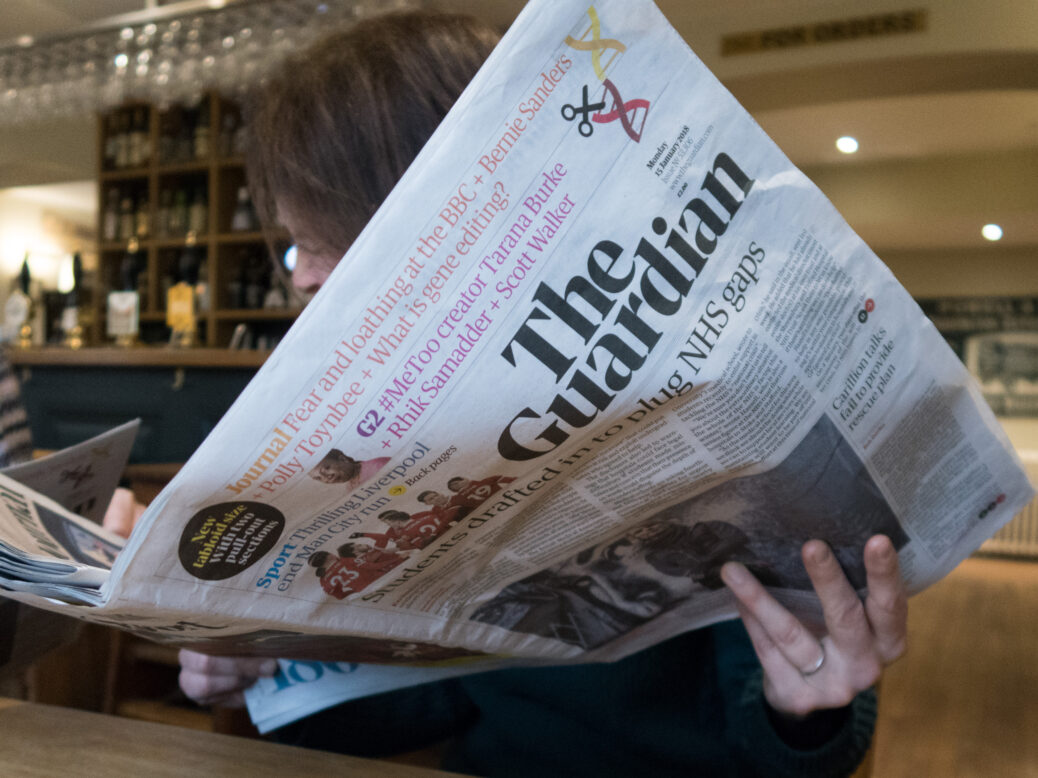
The Guardian is the latest newspaper to reveal its wounds from Covid-19. It plans to cut 12 per cent of its workforce, including 70 editorial jobs, and to shut four out of eight sections from its Saturday edition – which sells more than twice as many copies as the daily paper – replacing them with a single “new and exciting” lifestyle and culture section. Staff are apprehensive and disgruntled. The paper unwisely announced its plans as its annual report revealed last year’s 5 per cent pay rise to £391,000 for the editor, Katharine Viner.
Crucial issues remain unresolved. Should the Guardian follow the Independent and ditch print, becoming exclusively digital? Or follow the Times, ditching free online access and putting up a paywall? Should it aim to consolidate its position as Britain’s only serious centre-left newspaper, or to realise its ambition of becoming the leading global liberal brand? Editorially, it teeters between the two. It supported Corbyn at the 2019 general election but its anti-Corbynite columnists prompted Laura Alvarez (aka Mrs Jeremy Corbyn) to tweet, in response to news of its cuts, “for our mental health and future… stop buying the Guardian”.
Meanwhile, the paper’s relentless “wokeness” may win friends on the US coasts but increasingly alienates older British readers.
Loads of money
Anybody under 60 may find it difficult to believe but Time Out – founded in 1968 by Tony Elliott, who has died aged 73 – was once part of Britain’s alternative press, alongside the likes of Oz and Black Dwarf. In its early days, decisions were taken collectively and all staff got the same wage. Readers needed, as Mick Jagger put it, to cross a picket line of news about police harassment, racial discrimination and slum landlords before reaching the theatre, cinema and music listings. The radicalism was fading by the 1980s, when staff went on strike and some left to start a short-lived competitor.
Time Out became a global brand and its founder entered the Sunday Times Rich List. The late Felix Dennis, a co-editor of Oz once charged with “conspiracy to deprave and corrupt” the young, followed a similar path, building a portfolio of men’s lifestyle and computer magazines. The 1960s counterculture ended not with a bang, but with shedloads of money.
Beefy in the House
The only argument of any merit for retaining the House of Lords in its present form is that it allows parliamentary deliberations to benefit from the wisdom and experience of top scientists, entrepreneurs, university leaders, trade unionists and so on, as well as retired ministers and MPs. Now, it is reported, Boris Johnson will nominate Ian Botham for a peerage. Perhaps it is mere snobbery but I can’t imagine Botham, one of England’s greatest cricketers, making a useful contribution to a parliamentary debate, and that’s not just because he’s pro-Brexit. His comments on Sky Sports were banal at best and the channel has mercifully dropped him. As for the wisdom of age, he was already 37 when he bowled his last ball in first-class cricket with his member hanging out of his trousers.
No doubt Johnson calculates that Botham will be a popular choice. But if prime ministers second-guess the people’s will in this fashion, why don’t we experiment with democracy and try an elected second chamber?
Maskless mourners
Does anybody, except people mugging up on them as a Mastermind specialist subject, understand the current rules on preventing coronavirus infection? A few days ago, my wife went to a well-attended funeral. Few wore masks, she reported. Social distancing was erratic. Most surprising was the hearty singing of hymns, not least by the presiding cleric. The latest official guidance for funeral organisers states that “activities such as singing, chanting, requiring raised voices… should be specifically avoided”.
Category error
Johnson says he wouldn’t abandon the “tool” of another national lockdown any more than he would abandon the nuclear deterrent. Isn’t this a category error? Nuclear weapons kill people.Lockdowns save lives.






